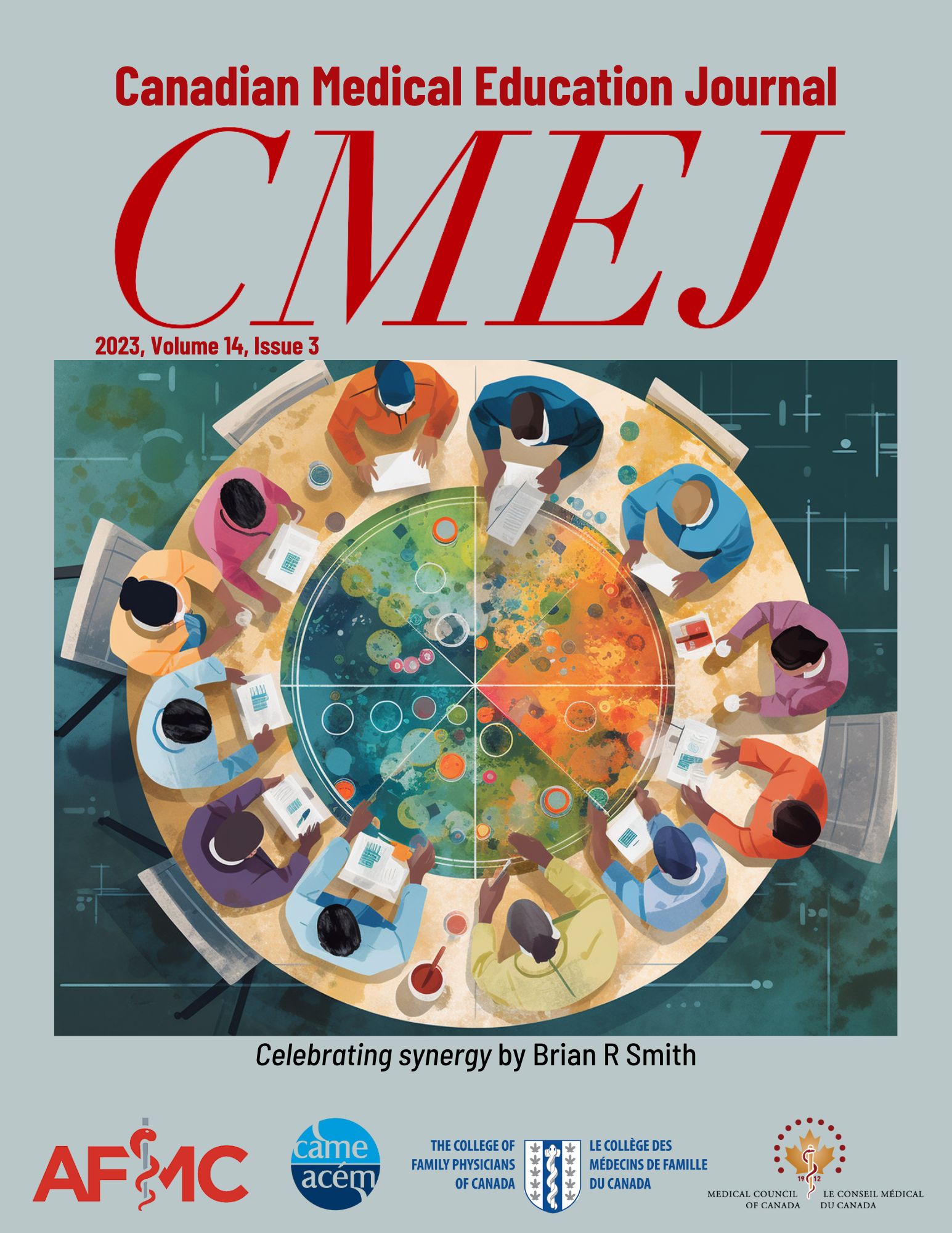Anticoagulation management: an interdisciplinary curriculum for family medicine residents
DOI:
https://doi.org/10.36834/cmej.76200Abstract
Implication Statement
Anticoagulants are high-risk medications with the potential to cause significant patient harm if inappropriately managed. Medical trainees and practicing physicians often report inadequate education and uncertainty in decision-making related to anticoagulation therapy. To address this gap, an interdisciplinary Anticoagulation Management Training Program was developed for family medicine residents at the Toronto Western Family Health Team. Evaluation data demonstrated both improved knowledge and confidence in prescribing, monitoring, and adjusting anticoagulation therapy. This suggests that similar dedicated curricula be considered in other family medicine programs in order to optimize patient safety by enhancing the knowledge and self-efficacy of future practising physicians.
References
Institute for Safe Medication Practices (ISMP). ISMP list of high-alert medications in community/ambulatory care settings. ISMP; 2021. https://www.ismp.org/recommendations/high-alert-medications-community-ambulatory-list
Budnitz DS, Shehab N, Lovegrove MC, et al. US Emergency department visits attributed to medication harms, 2017-2019. JAMA. 2021; 326(13):1299-130. https://doi.org/10.1001/jama.2021.13844
Heidbuchel H, Berti D, Campos M, et al. Implementation of non-vitamin K antagonist oral anticoagulants in daily practice: the need for comprehensive education for professionals and patients. Thrombosis. 2015; 13:22. https://doi.org/10.1186/s12959-015-0046-0
Chamberlain MA, Sageser NA, Ruiz D. Comparison of anticoagulation clinic patient outcomes with outcomes from traditional care in a family medicine clinic. J Am Board Fam Pract. 2001;14:16–21. https://www.jabfm.org/content/jabfp/14/1/16.full.pdf
Greveson GC, Spencer JA. Self-directed learning–the importance of concepts and contexts. Med Educ. 2005;39(4):348–349. https://doi.org/10.1111/j.1365-2929.2005.02115.x
Yardley S, Teunissen PW, Dornan T. Experiential learning: transforming theory into practice. Med Teach. 2012;34(2):161-4. https://doi.org/10.3109/0142159X.2012.643264
Downloads
Published
Issue
Section
License
Copyright (c) 2023 Jaspreet Nijjar, Patricia Marr, Diana Toubassi, Debbie Kwan, Christine Papoushek

This work is licensed under a Creative Commons Attribution-NonCommercial-NoDerivatives 4.0 International License.
Submission of an original manuscript to the Canadian Medical Education Journal will be taken to mean that it represents original work not previously published, that it is not being considered elsewhere for publication. If accepted for publication, it will be published online and it will not be published elsewhere in the same form, for commercial purposes, in any language, without the consent of the publisher.
Authors who publish in the Canadian Medical Education Journal agree to release their articles under the Creative Commons Attribution-Noncommercial-No Derivative Works 4.0 Canada Licence. This licence allows anyone to copy and distribute the article for non-commercial purposes provided that appropriate attribution is given. For details of the rights an author grants users of their work, please see the licence summary and the full licence.











